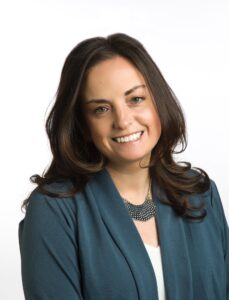HSC professor creates tool to decode online drug market
- December 21, 2023
- By: Eric Griffey
- Our People
Related Links
 The learning curve for social media is a moving target for parents.
The learning curve for social media is a moving target for parents.
Children of all ages have access to a seemingly endless stream of new apps and platforms, each accompanied by evolving trends, lingo and untold dangers.
Now that the holidays are here, those dangers are exacerbated, particularly for teens. Social media has become an open market for drug sales, despite crackdowns by tech companies and lawmakers at every level. During the holiday season, drug use ratchets up significantly, according to the American Medical Association and others.
Multiple studies have found that accidental overdoses increase by more than 20% during the holidays. The seasonal spike in use, coupled with the ease of access to drugs through social media, can make this time of year stressful for concerned parents.
A researcher at The University of North Texas Health Science Center at Fort Worth has developed a new guide to help parents influence their children’s decisions about substance use and decode the complex hieroglyphics used by drug dealers online.

Dr. Dana Litt, associate professor in HSC’s School of Public Health, created a playbook for concerned parents in conjunction with Challenge of Tarrant County’s Purposeful, Preventative Parenting campaign.
Challenge of Tarrant County is a nonprofit dedicated to confronting substance use by identifying needs, educating the community, mobilizing resources, promoting collaboration and advocating for sound public policy. The organization’s campaign aligned with Red Ribbon Week, the largest drug use prevention campaign in the country.
“Open and honest communication about substance use between parents and children is essential year-round, but it becomes particularly critical during the holidays when there is an elevated risk of experimentation and exposure to substances,” Litt said. “These conversations help establish a foundation of trust, knowledge and awareness, empowering children to make informed choices related to substance use.
“Through my partnership with Challenge of Tarrant County, I’ve been able to translate research findings into a practical online guide for local families, equipping them with the tools and resources needed to navigate these challenging conversations effectively. Together, we’re fostering a safer and more informed community, ensuring that parents can confidently address substance use concerns with their children and provide the support necessary to keep them safe during the holiday season and beyond.”
In addition to the drug lingo encryption glossary, the 21-page booklet includes helpful statistics about how technology inflates the dangers of substance use among teens, parental misconceptions about the impact their words have on their children, information about how drug traffickers operate online, strategies to initiate tough conversations with teens about drugs and more.
“Dr. Litt’s insight and understanding in the social and environmental factors that influence risk and decision-making are profound for those of us in the prevention field,” said John Haenes, Challenge of Tarrant County’s chief operating officer. “Through her expertise, we have been able to develop effective strategies in reaching adolescents, young adults and parents with crucial information designed to save lives.”
Recently, a Drug Enforcement Agency national initiative targeted drugs on social media. According to the DEA, in that investigation, more than 1,100 drug cases were linked to social media and encrypted communications platforms, including Facebook, Instagram, TikTok, Snapchat, WhatsApp, Telegram, Signal, Wire and Wickr.
The fentanyl epidemic has made the problem all the more perilous for teens — and terrifying for parents.
“Dr. Litt’s groundbreaking work in partnership with the Challenge of Tarrant County exemplifies the profound impact that academic and community collaborations can have,” said Dr. Shafik Dharamsi, dean of HSC’s School of Public Health. “Through this collaborative effort, we not only contribute to the academic understanding of increased substance use among adolescents and young adults this time of year, but we also actively engage with our community, providing practical solutions and support to ensure a safer and healthier holiday season for all.”






Social media